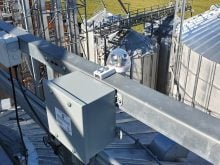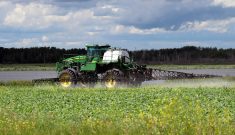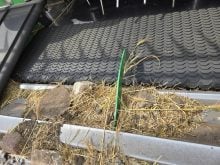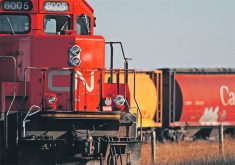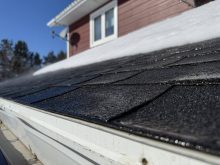Manitoba company turns major farm expense into an asset by using alternative fuel sources for grain drying
With all the grumblings about the federal carbon levy’s effect on grain drying costs, a company that promises its technology can use a fuel source exempt from the tax should have customers lining up.
“There are two sides to that,” said Triple Green chief executive officer Lyall Wiebe.
“Obviously, there’s lots of interest, but there are lots of fellows sitting on the sidelines because they are anticipating that the carbon tax will be removed.”
Read Also
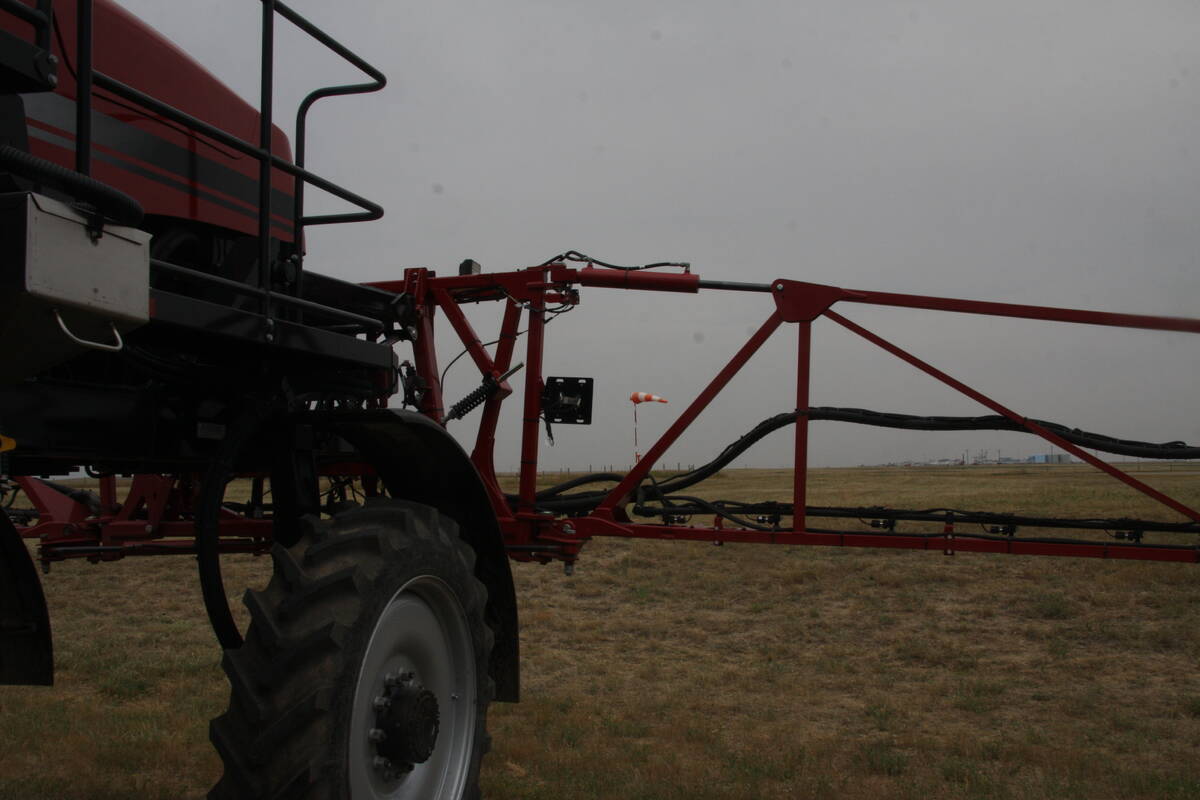
More work wanted on removing red tape
REGINA — Canadian farmers risk falling further behind competitors if two main federal agencies don’t become more efficient and responsive…
Triple Green from Morris, Man., produces biomass-fueled heating, composting and dehydrating systems used in mining, agriculture, industrial and other applications.
The product Wiebe is talking about is Triple Green’s BioDryAir. It is basically a forced-air furnace that attaches to a farm’s existing air dryer with a duct to direct the air. It’s fed fuel via a hopper and auger system. The product allows farmers to use biomass fuel sources, including crop residue, which are exempt from the carbon levy.
However, the carbon levy is a hot button issue, and Wiebe said he wants to be careful about how he navigates those waters. On the one hand, his business would benefit from an augmented price on carbon. On the other hand, the tax is very unpopular with the customer base he’s trying to attract.
Regardless of any supplemental price on carbon, Wiebe said his product’s return on investment is significant.
“One farmer told us it was probably his best investment ROI that he’s ever made on his farm. It took grain drying from a huge cost to a profit centre,” he said.
“Forget about the carbon tax; we can put money in their pockets and increase their profit margins. I have instructed our sales staff to not even bring up the argument of a carbon tax and sell it on the basis that there isn’t one.”
During the debate over Bill C-234, the private member’s bill that aimed to exempt grain drying from the carbon levy, Wiebe engaged with politicians involved to correct some misconceptions about grain drying fuel.
“I’ve written senators on both sides of this issue because of claims made by various farm groups that there’s no good alternative.”
Wiebe said his company’s products belie those claims.
“With our systems, we can burn almost any type of biomass,” he said.
“It doesn’t have to be wood pellets; it can be grain pellets or various other kinds of pellets and all kinds of different types of biomass.”
Wiebe said producers could even dump loose hay into the burner.
“You would need to push a lot of loose hay into it in order to get the amount of BTUs you need,” he said.
“In other words, a more condensed form of biomass works better.”
But while hay might not be an optimal fuel source, some of Triple Green’s customers do burn unprocessed biomass in their dryers.
“We just commissioned the O Foods oat milling plant on the northwest side of the perimeter (near Winnipeg),” said Wiebe.
“We have two big boilers in there. One boiler is supplying high-pressure steam to the processing plant and the other is supplying heat to the processing plant and they’re burning oat hull.”
Triple Green also has a seed-grower customer who screens out grain with ergot to burn.
“He used to have to haul that ergot to the municipal waste facility,” said Wiebe.
“And now he burns it and turns it into energy.”
Wiebe and his partners took over Triple Green five years ago.
“It was a struggling business, but they had a proven product,” he said.
“We have invested an enormous amount of money in automation, redesign and improvements.”
When Wiebe took over the business, it was largely focused on drying technology for the mining industry. However, he recognized how effectively the technology could be adopted for agricultural purposes.
“We saw a business opportunity taking our product that we had drying various different products in the mining sector and making several changes in product design and automation to fit the agricultural sector,” Wiebe said.
“Now, we’re on the cusp of really getting going on the bio-dryer side of things.”
However, while Triple Green has sold a few units to Manitoba farmers, sales haven’t come close to reaching the potential he sees for the product.
“We have the early adopters reaching out to us and moving forward, but our product is leading edge,” said Wiebe.
“We’ve had these drying systems in the mining sector for many years, but it’s new to the agriculture sector ,and farmers are a wait-and-see kind of group. They want their neighbor to try it first.”
It also doesn’t help that with high commodity prices, until quite recently, it’s been fairly easy for grain farmers to make a profit. However, he anticipates interest will grow in BioDryAir as commodity prices fall, input prices increase and farmers look at more creative ways to squeeze profits from their fields.
“Our system will make their profit margin much greater,” he said.
While Triple Green is currently not in the business of selling fuel for its forced air furnaces, the company recently signed a memorandum of understanding with an American biomaterials company that has developed a hybrid crop called Xannogras with enormous potential as a fuel source.
“It is a game changer,” said Wiebe of the product that looks like a cross between bamboo and corn and grows to nine metres in one season.
“With this product, the farmer could, in fact, grow his own fuel on very few acres,” said Wiebe.
The product is not yet available in Canada.
“That’s what they’re working on now,” said Wiebe.
“They need to pass different tests with the regulatory people at the federal level.”






